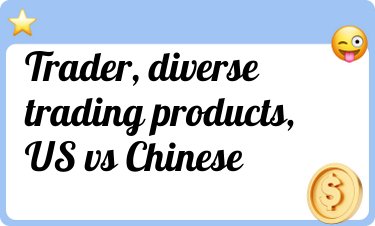Futu 2025 Review: Everything You Need to Know
Futu has emerged as a notable player in the online brokerage space, particularly for investors interested in the Hong Kong and U.S. markets. With a focus on digital trading and a user-friendly platform, Futu offers competitive pricing and a diverse range of investment options. However, potential users should be aware of the broker's limitations, including a high minimum deposit requirement and a lack of certain trading features.
Note: Its important to consider that Futu operates under different regulatory entities depending on the region, which can impact its offerings and user experience.
Rating Overview
We score brokers based on a combination of user feedback, expert analysis, and factual data.
Broker Overview
Founded in 2012, Futu Securities International operates as a fully digital brokerage firm, targeting clients primarily in Hong Kong and mainland China. The broker is known for its proprietary trading platforms, Futubull and Moomoo, which facilitate trading in various asset classes including stocks, ETFs, options, and more. Futu is regulated by the Securities and Futures Commission (SFC) of Hong Kong, which adds a level of credibility to its operations.
Detailed Breakdown
Regulated Regions:
Futu is primarily regulated in Hong Kong under the SFC, which ensures a degree of oversight and consumer protection. However, it does not hold licenses to operate in many Western markets, which may limit its appeal to international investors.
Deposit/Withdrawal Currencies:
Futu accepts deposits in HKD and USD, but it does not support cryptocurrencies or e-wallets for funding. The minimum deposit requirement is set at $1,500, which may deter smaller investors.
Bonuses/Promotions:
Futu does not prominently feature bonuses or promotional offers in the same way that some competitors do, focusing instead on competitive pricing structures.
Tradable Asset Classes:
Futu offers access to a range of asset classes, including:
- Stocks
- ETFs
- Options
- IPOs
- Warrants
Costs (Spreads, Fees, Commissions):
Futu employs a transparent fee structure with zero-commission trading on certain Hong Kong and U.S. stocks. The commission for U.S. stocks is $0.0049 per share, while options incur a fee of $0.65 per contract. The broker also charges a flat fee for margin trading, which ranges from 4.8% to 8.8% depending on the asset class.
Leverage:
Leverage is available to retail clients, with a maximum of 1:2 for long positions and 1:1.67 for short positions. However, a minimum account value of $2,500 is required to access margin trading.
Platforms Allowed:
Futu offers its proprietary platforms, Futubull and Moomoo, which are designed for both desktop and mobile use. However, it does not support popular trading platforms such as MT4 or MT5, which may limit options for experienced traders.
Restricted Regions:
Currently, Futu does not accept clients from Singapore, which may limit its market reach in Southeast Asia.
Available Customer Support Languages:
Futu provides customer support primarily in English and Chinese, but lacks a live chat feature, which can be a drawback for users needing immediate assistance.
Rating Revisit
Detailed Explanations
Account Conditions:
Futu's minimum deposit of $1,500 is relatively high compared to other brokers, which may discourage new or smaller investors. Additionally, the lack of a demo account limits opportunities for practice and exploration.
Tools and Resources:
The platforms Futubull and Moomoo are equipped with various analytical tools and resources, but the absence of a demo account is a significant downside. Users can access real-time market data, but those new to trading may find the learning curve steep without a risk-free environment.
Customer Service and Support:
Customer support is available via email and phone, but the absence of a live chat option is a drawback, particularly for users seeking immediate assistance. Response times can vary, with some users reporting delays.
Trading Setup (Experience):
The trading experience is generally smooth, with an intuitive interface that is accessible for beginners. However, the lack of advanced trading features may deter more experienced traders seeking sophisticated tools.
Trustworthiness:
Futu is regulated by the SFC, which adds a layer of trust. However, its limited regulatory footprint outside of Hong Kong raises questions about its operational practices and consumer protection in other regions.
User Experience:
The overall user experience is positive, with a well-designed platform that facilitates trading. However, the limitations in asset classes and trading features may affect its appeal to a broader audience.
In conclusion, while Futu offers a solid platform for trading in Hong Kong and U.S. markets, potential users should weigh its advantages against the drawbacks, particularly regarding minimum deposits and support options.












